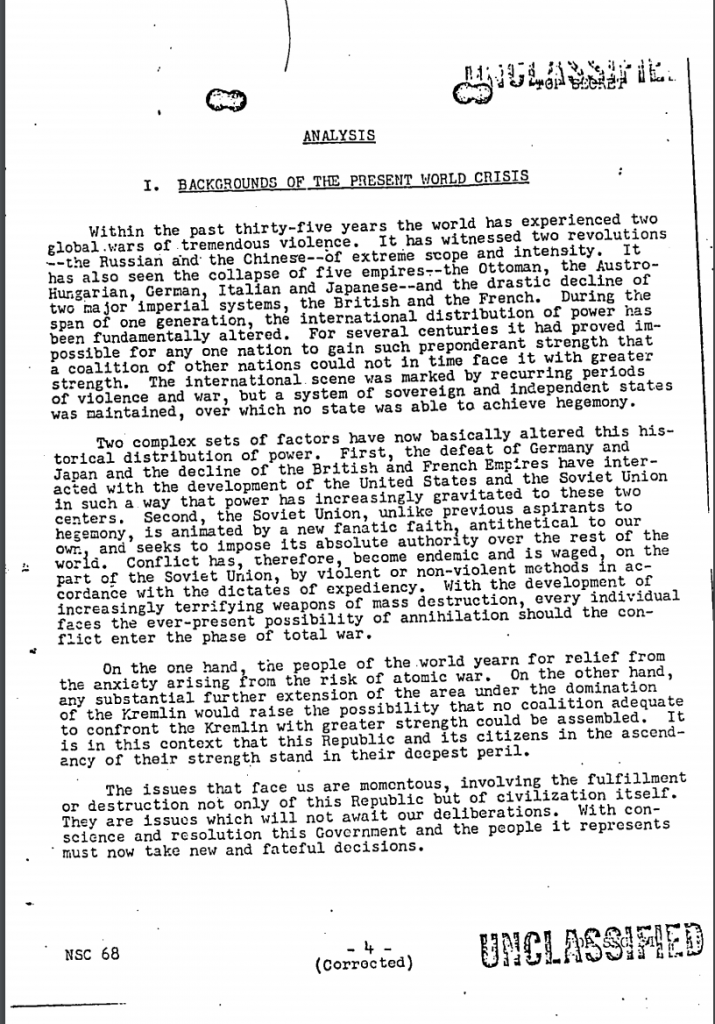“The crisis atmosphere of 1949-50 produced most notably NSC-68, a sweeping restatement of U.S. national security policy ad one of the most significant Cold War documents. In late 1949, Truman ordered a review of military policies in response to loss of the nuclear monopoly. Long frustrated by the staunch opposition of the president and Defense Secretary Louis Johnson to increased military spending, Acheson used the study, as he later put it, to ‘bludgeon the mass mind of “top government”‘ into spending the money necessary for adequate defenses. NSC-68 was drafted by [Paul] Nitze, who had replaced Kennan as head of the Policy Planning Staff. A Wall Street investment banker, as intense in personality as his mentor James Forrestal, Nitze exceeded Acheson in his gloomy worldview. His study set forth an urgent statement of the national security ideology. It proclaimed the necessity of defending freedom across the world to save it at home. Written in the starkest black-and-white terms, it took a worst case view of Soviet capabilities and intentions.” –George Herring, From Colony to Superpower, p, 638
Discussion Questions
- What major developments were fueling the “crisis atmosphere” that Herring attributes to 1949-50?
- How did NSC-68 represent a new era in the evolution of US attitudes toward containment of the Soviet Union?
- Full scan of NSC-68 (Wilson Center)
- Document transcript of NSC-68 (Mt. Holyoke)

